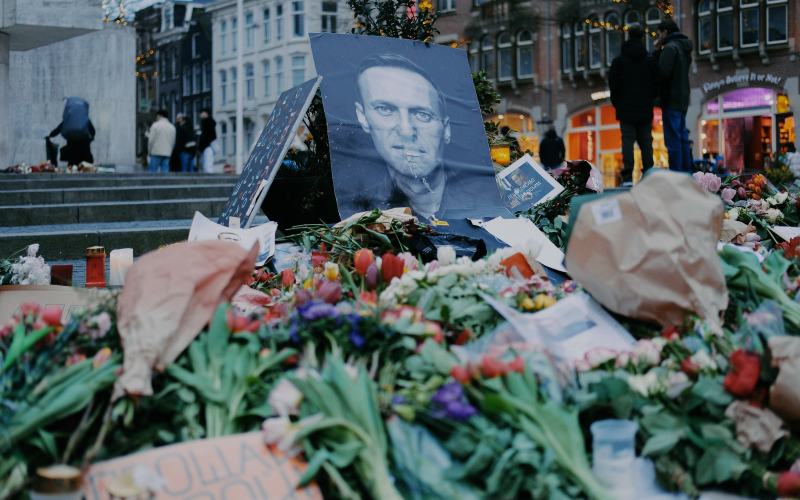Table of Contents Show
Alexei Navalny is a highly prominent Russian opposition leader and anti-corruption activist who has spent years fighting against the government of Russian President Vladimir Putin. Despite facing numerous challenges and obstacles, Navalny has remained a vocal critic of Putin and his administration, using social media and public protests to draw attention to issues of corruption and political repression in Russia.
Born on June 4, 1976, in Butyn, Russia, Navalny grew up in a middle-class family. He attended the Russian State Law Academy in Moscow, where he earned a law degree. After graduation, he worked as a lawyer and later as a businessman before becoming involved in politics.
In the mid-2000s, Navalny began to focus on exposing corruption in Russian state-owned companies. In 2008, he started a blog called RosPil; (Russian for “Sawdust”) that revealed corruption in government tenders and contracts. The blog gained widespread popularity, and Navalny soon became one of Russia’s most prominent anti-corruption activists.
Navalny’s activism has brought him into frequent conflict with the Russian government. In 2013, he was convicted of embezzlement and sentenced to five years in prison, a decision that many saw as politically motivated. However, he was released the next day after thousands of protesters took to the streets in Moscow to demand his release.
Over the years, Navalny has faced physical attacks and intimidation from the Russian government. In 2017, he was sprayed with a green dye that temporarily blinded him in one eye. The attack was widely believed to have been carried out by government agents. In 2019, he was hospitalized with what was suspected to be poisoning while serving a 30-day sentence for organizing an unauthorized protest.
Navalny accused the Russian government of being behind the poisoning, but the government denied any involvement.
Despite the many challenges he has faced, Navalny has continued to speak out against Putin and his government. In 2018, he attempted to run for president of Russia but was barred from the race due to his criminal conviction. Instead, he called for a boycott of the election, which was widely seen as rigged in favor of Putin.
In 2020, Navalny made headlines around the world after he was poisoned with a nerve agent while on a flight from Siberia to Moscow. After being airlifted to Germany for treatment, he accused Putin of ordering the attack, a claim that was denied by the Russian government. Navalny eventually recovered and returned to Russia, where he was immediately arrested upon arrival and sentenced to two and a half years in prison for violating the terms of his probation.
Navalny’s imprisonment has led to widespread protests across Russia and condemnation from the international community. Russian authorities have arrested thousands of demonstrators and cracked down on opposition groups in response to the protests.
Despite his current incarceration, Navalny remains a significant figure in Russian politics and a symbol of resistance against Putin’s government. His activism has inspired a new generation of Russian opposition figures and has brought attention to issues of government corruption and political repression in Russia.
Navalny’s story is not just one of political activism but also one of personal bravery and resilience in the face of adversity. Despite facing significant risks and obstacles, he has continued to fight for what he believes in, and his unwavering commitment to the cause of democracy and justice in Russia has earned him the respect and admiration of many people around the world.
Navalny’s anti-corruption activism has been a driving force behind his political career, and he has been widely credited with exposing some of the most egregious cases of corruption within the Russian government. He has used his blog, social media platforms, and even his own investigations to bring attention to cases of fraud, embezzlement, and bribery, often by Russian government officials and state-owned companies.
Navalny’s activism has not been limited to exposing corruption, however. He has also been a vocal advocate for human rights and civil liberties in Russia, often speaking out against the government’s crackdown on free speech, political dissent, and independent media. He has organized and participated in numerous protests and rallies, often in defiance of government bans and restrictions.
Despite facing constant opposition and persecution from the Russian government, Navalny has
continued to gain popularity and support among the Russian people. His anti-corruption message resonates with many Russians who are fed up with the widespread corruption in their government and the lack of accountability for those in power. His calls for greater democracy and human rights have also struck a chord with many Russians who are disillusioned with Putin’s authoritarian regime.
Navalny’s activism has earned him both admiration and criticism, both within Russia and internationally. While many see him as a courageous and principled advocate for democracy and justice, others view him as a divisive figure who uses inflammatory language and tactics to further his political agenda. His outspoken criticism of Putin and his government has made him a target for harassment, intimidation, and even physical attacks.
Despite the many challenges he has faced, Navalny remains committed to his cause and to the fight against government corruption and political repression in Russia. His story is a reminder of the power of activism and the courage it takes to stand up to authoritarian regimes, even in the face of significant risks and obstacles.
Navalny’s current imprisonment and the crackdown on opposition groups in Russia have sparked widespread outrage and condemnation from the international community. Governments, human rights organizations, and activists around the world have called for his release and for an end to the Russian government’s repression of political dissent and civil society.
As of May 2023, Navalny remains in prison, serving his sentence for violating the terms of his probation. His imprisonment has not deterred his supporters or dampened his activism, however. His case has become a symbol of the ongoing struggle for democracy and human rights in Russia, and his message continues to inspire and galvanize people both within Russia and around the world.
In conclusion, Alexei Navalny is a highly prominent and influential figure in Russian politics and activism. His unwavering commitment to fighting corruption, promoting democracy, and defending human rights has earned him the respect and admiration of many people around the world. Despite facing numerous challenges and obstacles, he has remained steadfast in his beliefs and his activism, inspiring a new generation of Russian opposition figures and shining a light on issues of government corruption and political repression in Russia. His story is a powerful reminder of the importance of political activism and the courage it takes to stand up to authoritarian regimes.
TRENDING ARTICLES

Global Affairs, News, Trending
Russia’s Navalny

News, Society & Culture, Trending
Religions should be taxed

Leaders, Profiles, Trending
Kamala Harris, an American politician

News, Society & Culture, Trending
Should schools have armed guards?

Global Affairs, News, Trending
Russia’s objective

Leaders, Profiles, Trending






